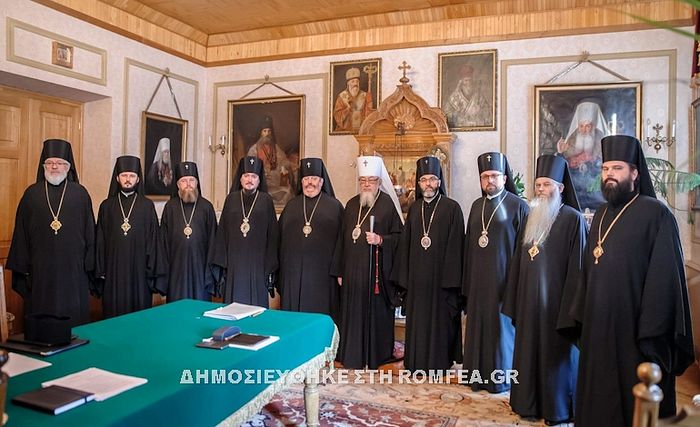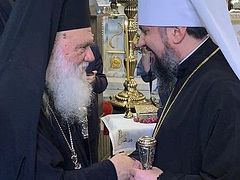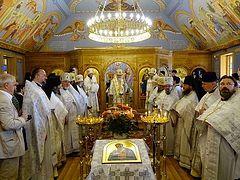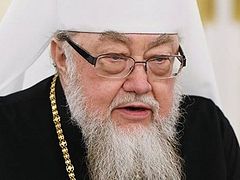Warsaw, October 31, 2019
Just days after the news that Archbishop Ieronymos of the Greek Church has officially recognized the schismatic “Orthodox Church of Ukraine” and Epiphany Dumenko as its primate, the Polish Orthodox Church has reiterated its firm stance against the nationalistic group.
The Bishops’ Council of the Polish Church, involving every hierarch of the Church, gathered in Warsaw on Tuesday, October 29, under the chairmanship of His Beatitude Metropolitan Sawa of Warsaw and All Poland, to discuss a number of issues, including the ongoing Ukrainian crisis.
According to the bishops’ communiqué, after examining the letters of His Holiness Patriarch Irinej of Serbia, His Beatitude Archbishop Anastasios of Albania (first letter, second letter), and Met. Sawa to Patriarch Bartholomew of Constantinople, the Council resolved to “Maintain its position on the autocephaly of the Ukrainian Church contained in Council Resolutions No. 340 of May 9, 2018, No. 341 of November 15, 2018 and No. 342 of April 2, 2019.”
Met. Sawa has written several letters in support of the canonical Ukrainian Church. In October, he wrote to Pat. Bartholomew, calling on him to call a pan-Orthodox council to resolve the Ukrainian issue, and in December he wrote a letter of support to His Beatitude Metropolitan Onuphry of Kiev and All Ukraine. He wrote to him again on March 13 on behalf of the entire Bishops’ Council, reiterating the Church’s previous statements.
Further, the Orthodox hierarchs reiterate that their position has nothing to do with a supposed anti-Ukrainian sentiment, but with the teachings of holy Orthodoxy: “The Polish Autocephalous Orthodox Church is not against granting autocephaly to the Orthodox Church in Ukraine on the basis of dogmatic and canonical norms for the whole Church, not a group of apostate schismatics.”
Recall that the canonical Ukrainian Church under His Beatitude Metropolitan Onuphry of Kiev and All Ukraine neither asked for nor desires autocephaly.
“Apostates from the teachings of the holy Church cannot represent a healthy Church organism. It violates the Eucharistic unity of all of Orthodoxy,” the Polish hierarchs affirm.
In its resolution of May 9, 2018, the Council emphasized the importance of the holy canons and repentance in the life of the Church:
“We express the clear position of the Polish Orthodox Church, namely that the ecclesiastical life of the canonical Orthodox Church should be based on the principles of dogma and the holy canons of the Orthodox Church. Violation of this principle leads to chaos in the life of the Church. There are certain schismatic groups in Ukraine which must first repent and return to the canonical Church. Only then can we discuss the issue of providing autocephaly… We must not be led by the political climate in questions of dogma and the canons.”
In its resolution of November 15, 2018, the Polish Bishops’ Council called for a pan-Orthodox council to resolve the Ukrainian issue and “forb[ade] the priests of the Polish Orthodox Church from having liturgical and prayerful contact with the ‘clergy’ of the so-called Kiev Patriarchate and the so-called ‘Autocephalous Orthodox Church,’ who have committed much evil in the past.”
In its resolution of April 2, 2019, the Council stated: “The autocephaly of the Church in Ukraine should be based on the dogmatic and canonical norms of the entire Church, and not groups of schismatics. Those who have departed from the Church and were deprived of their clerical ordinations cannot constitute a healthy Church organism. These non-canonical actions violate Eucharistic and inter-Orthodox unity.”
In January, the Polish Church also specifically rejected Patriarch Bartholomew’s request to recognize the new church in Ukraine created at the “unification council” on December 15, 2018.
See also Met. Sawa’s interview “Chaos Awaits Us,” for further explanation of the Polish Church’s stance.




